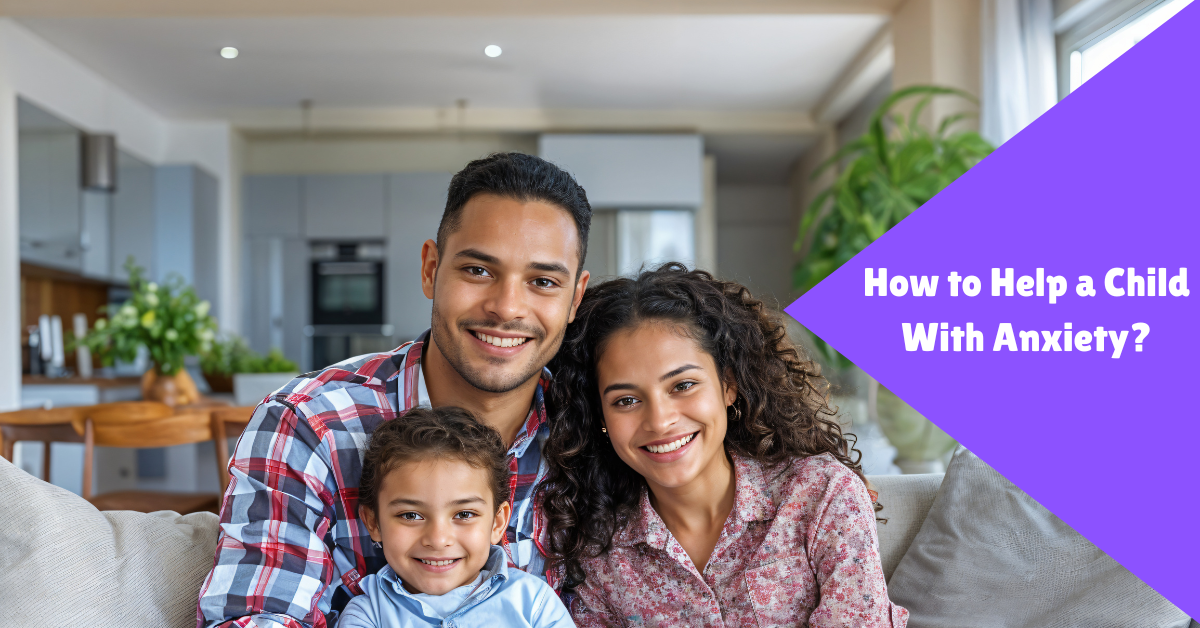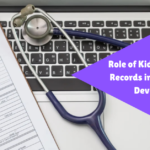Anxiety in children is more common than we often realize. Whether it’s exam stress, social pressure, or fear of failure, today’s kids face various challenges that can impact their mental well-being. As Indian parents navigating a blend of traditional values and modern parenting, it is crucial to recognize signs of anxiety in children and support them effectively.
In this article, we’ll explore what anxiety looks like in kids, its causes, and offer actionable strategies to help children manage and overcome it.
10 Effective Strategies on How to Help a Child with Anxiety
Here are science-backed and culturally appropriate methods for Indian parents to help their children manage anxiety:
1. Listen Without Judgement
Create a safe space where your child feels comfortable talking about their feelings. Avoid dismissing their fears as silly. For example, if a child fears failing an exam, say, “I understand exams can be scary. Let’s see how we can prepare together.”
2. Avoid Comparing
Indian households often compare children with siblings or peers. This can lead to self-doubt and increased anxiety. Focus on individual strengths and encourage self-improvement instead.
3. Encourage Daily Routines
Consistent routines offer children a sense of control. Make sure they have fixed times for meals, study, play, and sleep. This reduces unpredictability, which can fuel anxiety.
4. Use Relaxation Techniques
Introduce your child to:
- Deep breathing: “Smell the flower, blow out the candle” technique.
- Progressive muscle relaxation: Tensing and relaxing different body parts.
- Yoga: Simple asanas like child’s pose (Balasana) can help.
5. Limit Screen Time
Excessive screen time, especially on social media, can worsen anxiety. Set healthy screen limits and encourage offline activities like art, music, or sports.
6. Model Calm Behavior
Children learn from observation. Show them how to manage stress in healthy ways. Talk about your own challenges and how you deal with them.
7. Seek Professional Help
If anxiety interferes with daily life, consult a child psychologist. In India, platforms like Minds Foundation and YourDOST offer online counseling.
8. Encourage Positive Self-Talk
Teach your child to challenge negative thoughts. Replace “I can’t do it” with “I will try my best.”
9. Use Books and Stories
Children relate well to stories. Use books like “The Invisible String” or Indian folktales to talk about emotions, courage, and resilience.
10. Celebrate Efforts, Not Just Results
Praise your child’s effort rather than just their achievements. This builds intrinsic motivation and reduces performance anxiety.
What is Anxiety in Children?
Anxiety is a normal emotional response to stress or danger. However, when fear or worry becomes excessive, persistent, or interferes with daily life, it might be a sign of an anxiety disorder.
Some common types of anxiety in children include:
- Generalized Anxiety Disorder (GAD): Worrying excessively about routine things like school, health, or family.
- Separation Anxiety: Fear of being away from parents or caregivers.
- Social Anxiety: Intense fear of being judged or embarrassed in social situations.
- Specific Phobias: Irrational fear of certain things like darkness, animals, or injections.
Signs of Anxiety in Children
Parents must look out for the following symptoms:
- Frequent headaches or stomach aches without a medical cause
- Difficulty sleeping or nightmares
- Irritability or mood swings
- Avoidance of school or social activities
- Constant worry or negative thoughts
- Clinginess or fear of being alone
What Causes Anxiety in Children?
In India, several cultural and social factors can contribute to childhood anxiety:
- Academic Pressure: High expectations and competition in schools.
- Parental Pressure: Pressure to perform or behave a certain way.
- Social Media: Exposure to filtered realities, bullying, or peer comparison.
- Family Issues: Marital conflict, financial stress, or illness in the family.
- Traumatic Events: Accidents, loss of loved ones, or abuse.
Indian Context: School Anxiety and Parental Expectations
In Indian culture, school performance often defines a child’s worth. Pressure to excel in board exams or competitive tests like JEE/NEET can cause severe anxiety. Parents must shift focus from just marks to learning and emotional well-being.
For example, instead of asking, “How many marks did you get?” ask, “What did you learn today?”
When to Seek Help?
Consult a child mental health professional if:
- Anxiety lasts for several weeks or months.
- It affects sleep, appetite, or social life.
- Your child avoids school or other routine activities.
- There’s a family history of mental illness.
In India, you can seek help from:
- NIMHANS, Bengaluru: Offers outpatient services for child psychiatry.
- TISS iCall: Free, confidential helpline for mental health support
Support Systems That Work
- School Counselors: Many CBSE and ICSE schools have trained counselors.
- Support Groups: Online communities on Facebook or WhatsApp groups for parenting support.
- Parenting Workshops: Attend sessions conducted by pediatricians or psychologists.
Preventive Measures for Parents
- Create Open Communication: Make emotional check-ins part of your routine.
- Introduce Mindfulness Early: Apps like Smiling Mind or Headspace for Kids offer guided meditations.
- Promote Physical Health: A Balanced diet, sleep, and regular exercise impact mental well-being.
- Limit Over-Scheduling: Let kids have free time to rest and explore creativity.
How to Help a Child With Anxiety?
Helping a child with anxiety starts with understanding their feelings and offering gentle support. Many Indian children experience stress from exams, school pressure, or social situations, and it’s important not to dismiss their worries as small or silly.
Instead, listen patiently, reassure them, and guide them through simple coping techniques like deep breathing, storytelling, or creating a calm daily routine. Avoid comparisons, celebrate their efforts, and, if needed, seek help from a counselor or mental health professional.
With love, empathy, and patience, you can help your child feel safe, supported, and strong.
Common Myths in Indian Households
- “Anxiety is just a phase.”No, untreated anxiety can worsen over time.
- “Only weak kids have anxiety.”Anxiety is not a sign of weakness. Even high achievers experience it.
- “Talking about fears will make it worse.”Discussing fears helps children process them.
Real-Life Example
Meena, a mother from Pune, noticed her 10-year-old daughter complained of stomach aches before school. After months of testing, the pediatrician suggested it could be anxiety. With the help of a counselor, Meena adopted positive parenting methods, reduced academic pressure, and taught her daughter breathing exercises. Within months, the symptoms reduced, and the child started enjoying school again.
Helpful Resources
- National Institute of Mental Health and Neurosciences (NIMHANS)
- YourDOST Online Counseling
- Fortis Mental Health Department
Final Thoughts
Helping a child with anxiety requires patience, awareness, and consistent support. In Indian families where emotional conversations are still evolving, it’s important to create a culture of acceptance and understanding. Be gentle, be present, and be proactive.
By prioritizing your child’s mental health, you’re not only helping them navigate their current struggles but also building their resilience for a better future.
For more parenting tips, visit the KidsCur site!
FAQs
1. Can school-related anxiety affect academic performance? Yes, anxiety can lead to poor concentration, reduced participation, and fear of failure, impacting academic outcomes.
2. Should I let my child avoid anxiety-triggering situations? Avoidance may offer short-term relief, but can increase long-term anxiety. Instead, gradually expose them with support.
3. What foods help reduce anxiety in children? A balanced diet with fruits, vegetables, whole grains, and omega-3-rich foods like walnuts and flaxseeds supports brain health.



